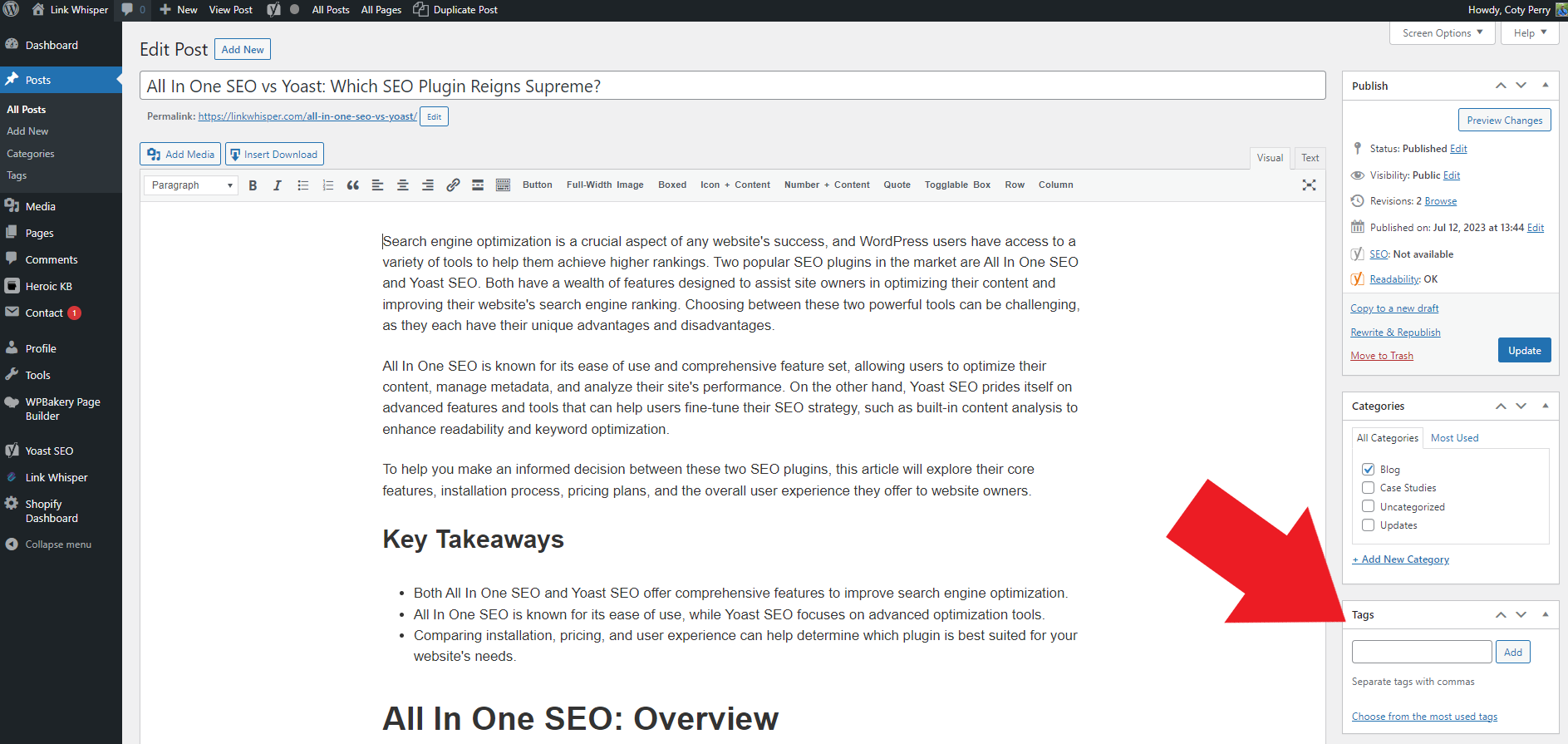
Evaluating the Impact of WordPress Tags on SEO: Best Practices and Insights
When it comes to optimizing your WordPress site for search engines, the debate around the use of WordPress tags can be quite contentious. Are they beneficial for SEO, or do they merely clutter your content? In this article, we delve into the intricacies of WordPress tags, their comparison with categories, and best practices for their use.
Understanding the Role of WordPress Tags
WordPress tags serve primarily as a tool for content organization. They allow you to categorize your posts by specific topics, making it easier for visitors and search engine crawlers to navigate your site. For instance, if you manage a digital marketing blog, your tags might include:
- SEO
- Content Marketing
- Affiliate Marketing
- Social Media
- E-commerce
Much like hashtags on social media, tags can help direct users to related content. However, overusing tags or recycling the same ones can lead to issues like keyword cannibalization, which diminishes their effectiveness.
WordPress Tags vs. Categories
While tags play a role in organizing content, categories can significantly impact your SEO. Categories serve as broader classifications, allowing you to group related posts together. For example, a fishing website may categorize its articles into types of fishing, such as bass fishing or fly fishing. This categorization not only aids in site navigation for users but also gives search engines a clearer understanding of your content’s focus.
The effectiveness of categories in enhancing site authority in specific subjects contrasts with the ambiguous role of tags. The consensus among experts is that while tags were once considered relevant for ranking, they no longer hold the same weight. Their primary function now lies in backend organization, simplifying content management for teams working on a site.
Best Practices for Using WordPress Tags
Even if tags aren’t pivotal for SEO, adhering to best practices can help you maximize their utility:
- Be Specific: Use tags that accurately represent the content of your post. Choose terms that provide context and relate directly to the article.
- Avoid Overuse: Limit the number of tags to a few relevant options per post. An excessive quantity can dilute their impact and muddle tag archives.
- Create a Hierarchy: Establish a parent-child relationship among your tags to maintain a clear structure within your content.
Mistakes to Avoid with WordPress Tags
To ensure your tags remain effective, here are common pitfalls to avoid:
- Generic Tags: Avoid using vague or unrelated tags. Ensure your tags accurately reflect the main topics of your posts to prevent confusion.
- Duplicate Tags: Reusing the same tags across multiple posts can create issues with duplicate content.
- Inconsistent Tagging: Establish a consistent naming convention for your tags to enhance user-friendliness and organization.
Frequently Asked Questions About WordPress Tags
Here are answers to some common questions regarding WordPress tags:
How do I choose effective SEO tags?
Select tags that align with your website structure, similar to categories, but keep in mind that their primary function is to help you and your team organize content.
Can improper use of tags hurt my SEO?
Yes, using irrelevant, overly generic, or excessive tags can negatively impact your site’s SEO.
How many tags should I use per post?
Aim for 2-3 highly relevant tags per post, ensuring they are focused and specific to the content.
